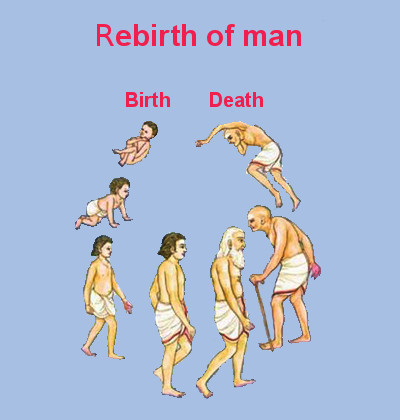To understand the meaning of Spirituality and its importance in human life, first and foremost let us acquaint ourselves with why we are born and the objective of all living beings and that of humans.
1. Why are we born – Objective of living beings – to experience eternal and supreme Ānand (Bliss)
Why are we reading this article here setting aside all our chores? Obviously, with the hope that we will learn something and thereby derive some happiness. Most people also experience the truth that, ‘Happiness seems as minute as a grain of barley, while unhappiness seems as huge as a mountain’. In an average person’s life, happiness is 25% and unhappiness is 75%. Every living being, from the smallest insect to the more evolved human being, is constantly in the quest for supreme quality of happiness. However, schools and universities do not teach how to acquire this happiness. Happiness, which is everlasting and has supreme quality, is called Anand. Since most people do not know how to attain this Anand (Bliss), each tries to acquire at least temporary happiness through the five senses, mind and intellect. The science which teaches us how to acquire Anand is termed the science of Spirituality.
2. Why are we born – Reasons for rebirth of man
Man is born repeatedly for two reasons. The first – 65% of the reason, is to endure and exhaust prārabdha (Destiny that is experienced in this birth) and the second – 35% of the reason, is to make spiritual progress so as to acquire Ānand. Each of us has atleast some desire to return to the Ānand form Brahman (God in His aspect as the Creator of the universe) from which we have been created.
Eternal happiness of Brahmānand (Ānand arising from Brahman Principle) is hundreds of million times (1020) more than the happiness experienced by Deities. It is indescribable and cannot be conceived by the human mind. Although this be so, man can perform consistent sādhanā (Spiritual practice) and experience Ānand arising from Brahman in the present birth itself. However, one does not experience Ānand in heaven. That is why, one should aim for Moksha (Final Liberation) rather than heaven. Since Deities have also realised this fact that Moksha can be attained by taking human birth only, they too desire human birth.
There is only one way to escape from the cycle of unhappiness, and that is to obliterate the desire for happiness; since due to the very desire for happiness, while attempting to generate merits, man ends up sinning and thus the cycle of birth and death continues perpetually. At the time of pralay (Dissolution of the universe) since Deity Brahmā (Deity of Creation) is asleep, no new creation takes place. It is only during this period that the individual gets some rest. But what is the use of this rest ? After Deity Brahmā wakes up, He once again causes us to be born according to our karmas (Action which gives rise to destiny). As long as desire (that is, desire for happiness) exists, we will continue to be born. In the destruction of the desire for happiness itself lies true happiness. The desire for happiness itself is the basic cause of all unhappiness. Thus, desire for happiness is a sin.
Reference: Sanatan Sanstha’s Holy Text on ‘Introduction to Spirituality‘ and ‘Spirituality‘



